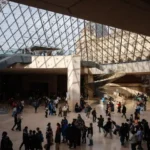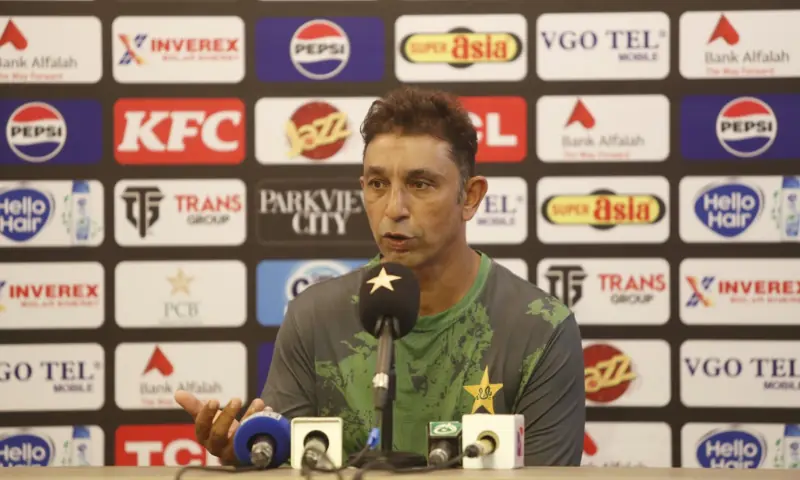The principles at play here rise above politics and into the realm of individual liberties and the rule of law, which once chipped away, leave every single one of us more vulnerable.
The opposition has been convicted. Its leaders in both houses of Parliament have been sentenced to a decade in jail, along with over a hundred other members of their political party. They and seven other opposition parliamentarians have been removed from their elected offices. If you were to apply these words to any country on the planet, most people reading would immediately understand this to be a shameless power grab by an authoritarian status quo; the work of an insecure and dictatorial mindset that treats the will, dissent, and collective intelligence of its own people with ruthless contempt.
But I am intentionally making no such statement here. For now, I’d like to focus instead on one simple, apolitical, and logical question — what did the judgment actually say?
Even if you are not invested in law or politics, it is in your interest to keep an eye on how your judicial system treats others. Not just because that is how it could one day treat you, but because these judgments are representative of where we are as a country, to what extent our rights are enforced, and how we are viewed and treated by those in power.
The convictions in this case, no. 832/ 2023, were delivered by the Anti-Terrorism Court Faisalabad in a 71-page judgment on July 31 written in language far too long and technical to appeal to the average citizen. But I read it, so you don’t have to, and the following aims to be an objective, open-minded analysis.
The verdict
Much about the heart of this document is unravelled in its opening paragraphs. Consider the language it uses to describe how the May 9 protests began: “On the asking of leadership of PTI, the mob became furious …”. This was presented not as an allegation, but as fact. And there is more at play here than the assumption that people can develop emotions purely because someone “asked” them to (the possibility that fully grown adults might hold their own opinions didn’t even warrant consideration here).
A critical and complex legal question — to what extent can the leaders of a party be held responsible for the subsequent actions of its supporters, and how strong is the evidence for that link in this case — stood answered by the Judge before either side’s arguments were even addressed.
Further down, the evidence presented by the prosecution consists overwhelmingly of social media content, speaking of piles of screenshot printouts and USBs filled with YouTube and TikTok videos purported to be inflammatory. This point would have been much stronger if the witnesses had quoted the specific words spoken by the accused which constituted incitement to violence. In the absence of this, we are expected to trust blindly. To be fair, there is some strong evidence on the record as well, such as photographs of damages and injuries, the recovery of destroyed items, and eyewitnesses to firing, destruction of property, and violence against police officers. This establishes that property damage and violence was indeed done by some people on the ground. But it does not address the question of whether this was specifically ordered or pre-planned as part of a conspiracy. To deal with this point, enter witness 19.
The ‘witness’
He is a sub-inspector who apparently narrated a story of “instigation and abetment” committed at Imran Khan’s Zaman Park residence during meetings on the 7th and 9th of May. This poses an obvious question — how did Mr Sub Inspector listen in to what was said at a high-level meeting between the former prime minister and his party leadership? In his own house? Twice?
One of the attendees of this meeting, former federal minister Hammad Azhar has claimed that the sole evidence relied upon here was that an officer was hiding under a table. And another was behind the curtains.
As ridiculous as that sounds, the story presented in the ATC’s judgment is even worse — absolutely nothing. We are explicitly told at paragraph 25 that two officers heard for themselves what was said during the Zaman Park meetings, but not a word as to how. They heard violent calls to anarchy, noted down the names of the 41 politicians in the room, and nominated all of them before the court. Simple.
The next evidence of a conspiracy presented to us is the report of “a secret meeting” that took place at the Rose Hotel in the motorway rest area of Chakri on May 4. At paragraph 24, we are told that an Inspector was informed of this meeting and told everything that was said in it by “a secret source”. Whether there could be a more flimsy and vague recount of evidence in a criminal trial is difficult to imagine.
On allegations of political victimisation
The judgment acknowledged that the people accused of hatching the conspiracy claim political victimisation; that they are being brutally harassed by the legal system from multiple directions, and that it is all to punish their party affiliation and break them into submission. It noted that they all plead not guilty.
And then it moved on to the 2023 film, ‘Money Back Guarantee’, starring Fawad Khan and Ayesha Omar. Fawad Chaudhry was busy attending the premiere, so he couldn’t have been at the conspiracy meeting. The rest of the accused apparently did not appear in court to present their defence. Whether it is more accurate to say did not or could not, I leave to you. But the priorities here appear clear.
Later in the judgment, it does finally address the claims of political victimisation. At the end of paragraph 27, it states: “If it was the case as asserted by present accused persons of abetment and conspiracy then why the all [sic] prominent leaders of PTI were not dragged for alleged conspiracy and abetment …”. One struggles to find polite words to address an argument as weak as this one. But to put it simply, if you are actively locking up 100 members of the country’s largest opposition party, it is not enough to say, “at least I’m not arresting the rest of them”. Serious claims of victimisation like those made here ought to be addressed by a court in appropriate detail, and not in a single dismissive sentence.
An ode to the Raj
From this point onwards in the judgment, law takes a backseat, and we are taken on a journey through subcontinental history and moral philosophy. In a strangely counterintuitive point to bring up, it recalls in paragraph 28 that the sections of the penal code it is currently using to lock up the opposition were inserted by Lord Macaulay, a British coloniser, to lock up his opposition. It then goes on to compare May 9 with “the famous mutiny of 1857”, using colonial language for a historical event that we ordinarily refer to as the first war of independence, and reminding us that following this, “mass violation of these laws was seldom made by the masses in their own countries …”.
One wonders why on Earth such a comparison would be inserted into a criminal law judgment, or whether its implications were truly understood. Is the ATC Faisalabad comparing PTI protestors to the brave freedom fighters of the subcontinent who revolted against their colonisers? Is it comparing itself or someone else to the British Raj? If not, what did it possibly gain, or what legal point did it strengthen by adding these thoughts?
A short and sweet paragraph 29 asserts that the fact that a huge number of events took place on May 9, in almost all major cities, “shows that these events were organised and minutely and carefully planned with well thought out strategy and intentional design”. But to assume that the existence alone of mass protest is enough to prove its meticulous planning is in defiance of both history and logic.
Did the massive and occasionally violent protests against the murder of George Floyd across all major cities of America have one mastermind meticulously planning them out? What about the uprising against Nicolae Ceaușescu in Romania? Or even, to use this judgment’s own example, the first war of independence in 1857? It is of course, not outside the realm of possibility that this or any protest could have a degree of planning involved behind the scenes that is not known to the public. But if this is to be proven in a court of law, and used to lock people up, it requires clear evidence. Not half-baked conjecture.
The fault with the PTI
In paragraph 31, the judgment goes into a broad and bizarrely philosophical critique of PTI as a political party — “the culture of nihilism was intentionally promoted with solipsistic approach and the workers were made to believe that they alone are laudable and all others are condemnable”. The word salad that continues for the next several lines is too long and verbose to reproduce here, but the paragraph ends with the conclusion that this political party has by virtue of its existence and beliefs, attacked all of humanity, civilisation, and “conscious human efforts, spread on centuaries, [sic] to create some practicable and effective political system”. His Lordship seems to have exercised great restraint by choosing not to declare PTI to be the real mastermind behind the asteroid that killed the dinosaurs.
At this point, the question of “okay, but how is all of this relevant to a judicial order?” is so glaringly obvious that the very next paragraph seeks to address it: “Despite above discussion still the law requires sufficient proof for punishment of alleged offences and the convictions should be based on cogent and reliable evidence …”. Wonderful. On a side note, have you ever listened to a friend badmouth someone behind their back for hours on end, but they made sure to close it off with ‘but who am I to judge?’. That last line didn’t inspire a lot of confidence, did it?
Guilty by presence
Moving on to individual convictions, the judgment declares that everyone present during the allegedly conspiratorial meetings has been proved of abetment/instigation “beyond a shadow of doubt”. An Inspector adds that the presence of one gentleman, Makhdoom Zain Hussain Qureshi, could not be established at the meetings, and therefore he is acquitted.
This creates yet another bizarre legal position. Even if one were to assume that conspiracies were indeed being hatched during these meetings (for which no solid evidence has been provided), how can presence alone, in the absence of any proof of contribution to conspiracy be deemed a sufficient indicator of guilt? What if a party member attended, listened quietly, left, and went home? Does the law truly envision a 10-year prison sentence for the crime of silence? If stepping foot in the room was enough for the ATC to determine “beyond a shadow of doubt” that one is guilty of conspiracy, what about the people serving tea and biscuits at meetings like these? Should they too be locked up for a decade each?
Ultimately, through this judgment, the ATC Faisalabad has convicted 108 people and acquitted 77. The convicted maintain a right of appeal, but the Election Commission of Pakistan has been quick to disqualify all nine members of Parliament who were convicted, and their seats have been declared vacant. Vacant seats in Parliament are re-filled through by-elections. And this raises a new question — if the convictions are overturned in appeal, but a new MNA or MPA has already been elected on the vacated seat, who is to prevail?
The good news is that all of this can (and if we are to maintain any shred of hope in our justice system, should) be overturned in appeal. But much damage has already been done. This judgment is as bad at the law as it is at grammar. It makes no efforts to conceal its biases, choosing instead to flaunt them wherever it can, diving deep into explicitly political questions of who the people of Pakistan should or should not support, and doing so with an embarrassingly weak understanding of history, political theory, and the fundamental rights of free movement and association.
It is written in a style and tone that despite its inability to go two pages without a typo, assumes it knows better than you — consistently revealing a worldview that sees the people of Pakistan as easily influenced sheep, incapable of reaching their own opinions and undeserving of the freedoms inherent to a normal democracy. It treats its readers with contempt, and all but ensures that the feeling is mutual.
These are all conclusions that should matter to every Pakistani. Regardless of political beliefs or associations. Whether you like the person who was convicted or not. If a top politician can be locked up under legal reasoning that is so weak that a child could see through it, so can you. The principles at play here rise above politics and into the realm of individual liberties and the rule of law, which once chipped away, leave every single one of us more vulnerable. Yet oftentimes, developments like these are reduced to the adversarial nature of political contention, where one side must support and the other must oppose. That is flawed.
Once you read the judgment, you realise it’s not just some politicians whose future is being attacked. It’s yours.






